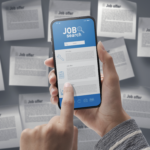Any mental health strategy that does not include burnout recovery and prevention is incomplete” says Hall, adding “Prevention equals performance and it’s the best retention strategy you can invest in.”
Analysing the results, Sean and his team found that the pandemic had significantly impacted the wellbeing of female workers, who presented at a significantly higher burnout risk than their male counterparts. In fact, 75% of the women included in the study were experiencing at least four of the 13 recognised warning signs for burnout.
Breaking down the warning signs for burnout, the study found in female participants:
- Sleep deprivation: 65% are waking up tired more than half of the time.
- Exercise: 62% were not feeling active or vigorous.
- Negative self-talk: 61% are struggling to manage their inner critic.
- Stress and overwhelm: 58% are feeling stressed and anxious more than half of the time.
- Balance and boundaries: 56% don’t feel like they have balance
- Clarity and focus: 55% are lacking clarity in personal and work lives.
- Relationships: 52% are lacking energy for our important relationships.
- Meaning and purpose: 49% don’t feel like daily life is interesting more than half of the time.
- Using strengths: 48% feel like they aren’t using their strengths most of the time.
- Nutrition: 46% are not eating healthy more than half of the time.
- Mood: 42% are not feeling cheerful or in good spirits more than half of the time.
- Loneliness: 31% don’t feel like we have great friends at work.
- Passion: 25% have a low passion for work.
Burnout, like more other mental health issues, has a negative impact on productivity and employee engagement. As burnout is more pervasive, Hall estimates this to be as high as 41 days per employee, per year or around 16% of salaries.
According to Sean and his team, the burnout–depression overlap has been largely underestimated and opens the door to more serious mental health issues, and the study found that:
- Women are more at risk of depression than men, with 58.8% of female study participants demonstrating risk for depression compared to 46.8% of male participants.
- Only 5.6% of male workers are thriving at work, however that is double the number of female workers at just 2.8%
“For any program to be truly inclusive it must recognise that everyone’s experience of burnout is unique. Firstly, they’ll have a different mix of warning signs and then each one of those can be at a different intensity. Once we understand this, we can make sure we design exactly the right program to address what is needed in the right sequence.”
Hall says that this is one area where Artificial Intelligence can be used for good to help the millions of people experiencing pandemic burnout.
“It would normally take a coach a number of hours to assess and design a program at a cost that may prevent many from seeking help. Our AI coach ‘Franky’ takes you through a simple 5-minute assessment, looks at your data and then instantly chooses from over 5.7 million options to design your personalised 86-day anti-burnout curriculum. This also means we can help thousands of people simultaneously.”
Energx has been using Franky as a key component of their wellbeing programs with clients more than doubling the number of thriving employees with an average 45% improvement in wellbeing while simultaneously reducing the number of employees showing depression risk warning signs by 67% in just 100 days.
Curriculums are a holistic mix of science-backed micro skills from fields like neuroscience, positive psychology, sleep science, nutrition, mindfulness and more. Each focused on addressing and prevent the root causes of burnout. As well as the common wellbeing topics like sleep and nutrition, they also include skills to improve mood, motivation, overcome loneliness and tame your inner critic.
“We believe everyone deserves a coach and now this is possible,” Sean said, “Every day that employers do not act on this issue, it gets worse. The time to act is now.”
energx.com.au









